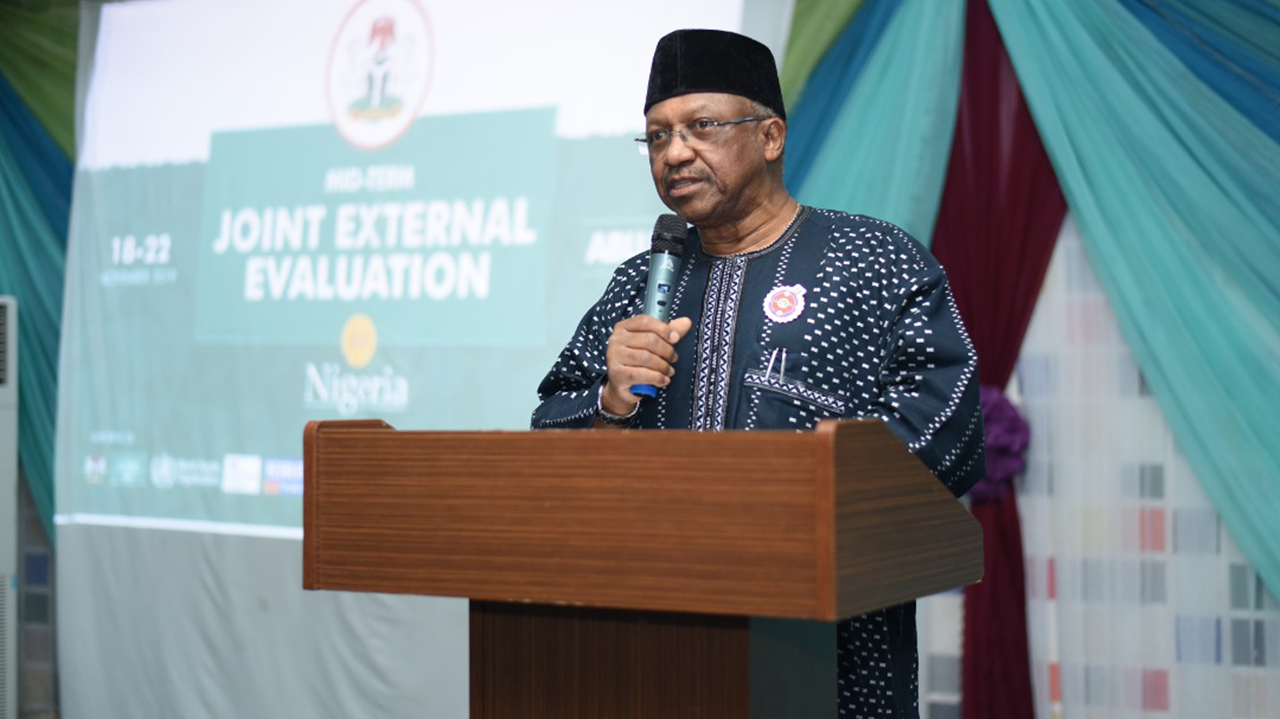
Despite reports that hydroxychloroquine and chloroquine do not treat coronavirus, Minister of Health, Dr. Osagie Emmanuel Ehanire, has declared that clinical trial on the anti-malaria drugs by the National Agency for Food and Drug Administration and Control (NAFDAC) is still ongoing.
He said, “It is not a one day job. Clinical trials take time. We are still testing the drugs on patients and collating results. I cannot tell you anything about the results now than that the tests are still ongoing.”
The major study of United States (U.S.)-backed anti-malaria drug, hydroxychloroquine ended with ‘immediate effect’ after researchers discovered that it was ineffective.
Being, the world’s biggest trial of the anti-malaria drug backed by President Donald Trump and Oxford University, scientists pulled the drug from the recovery trial after results showed it had no benefit on patients who have been hospitalised as a result of coronavirus.
Ehanire also said the country was considering several vaccine candidates for COVID-19, adding, “Vaccine development involves testing for safety and efficacy. We are looking at several candidates. It is not a one-off thing. It takes a long time.
“You have to test to make sure that it is safe and that it works. You have to test it in animals first. Once the results of the clinical trials and vaccines’ tests are out, I will be the first to announce it, you would not need to ask me.”
Reacting to the controversy over the use of hydroxylchloroquine and chloroquine, Emeritus Professor of Physiology, College of Medicine, University of Lagos, Professor Soga Sofola said, “There have been various treatments that have been proposed including hydroxylchloroquine and chloroquine and there have been many pros and cons including endorsements by some individuals, groups and regulating body.”
Meanwhile, the National Cancer Prevention Programme (NCPP), an initiative of mass medical mission, yesterday cautioned that the COVID-19 posed death risks for cancer patients.
Executive Director, NCPP, Dr. Abia Nzelu, who spoke at this year’s International Cancer Survivors Day (ICSD), explained the devastating impact of cancer and other Non-Communicable Diseases (NCDs) on COVID-19.
“Firstly, the increased susceptibility of cancer patients to COVID-19; secondly, the dearth of infrastructure for cancer care; thirdly, restriction on medical tourism due to the lockdown; and finally, the diversion of scarce resources towards addressing the COVID-19 pandemic,” she stated.
She said coronavirus had been hard on people living with NCDs and had compounded the challenges faced by cancer survivors, who are at higher risk of severe COVID-19-related illness and death, adding that although the impact of COVID-19 was being felt globally, developing countries were worse hit.
June 7 every year is set aside to celebrate cancer survivors, appreciate those who contributed to their survival and honour those who succumbed to cancer, while raising awareness on challenges facing survivors.






